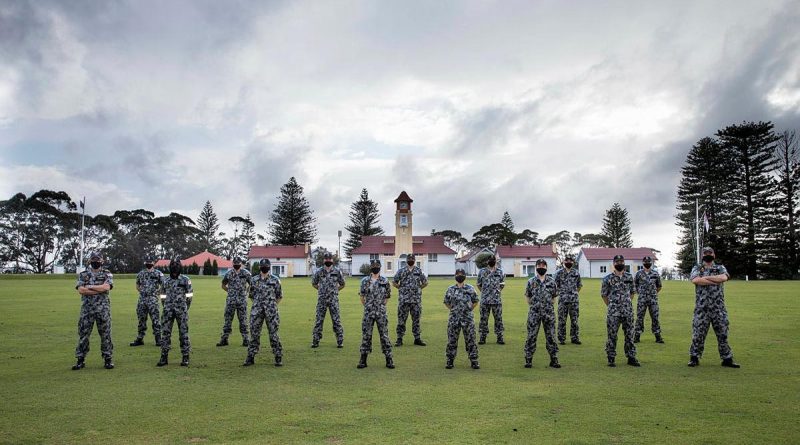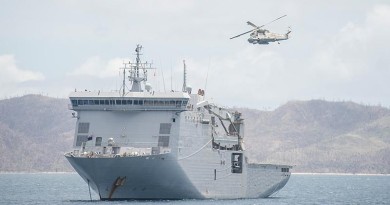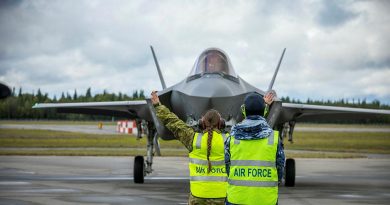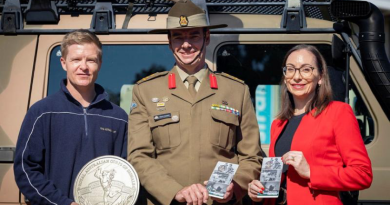Course navigates way through pandemic

When COVID-19 hit, it looked like the Navy Reserve Entry Officers’ Course (REOC) would be an early casualty of the pandemic.
CAPTION: Hunter Division of Navy’s Reserve Entry Officers’ Course 3-21 at HMAS Creswell. Story by Sub Lieutenant Emily Tinker.
With restrictions on face-to-face learning, lockdowns and rules on interstate travel constantly changing, it seemed the essential but short course at HMAS Creswell would be completely incompatible with the new normal.
While many training centres were putting in-person courses on the backburner, Lieutenant Commander Andrew Johnston said this was never an option for REOC.
“It would have created a backlog, but also created gaps that could affect Navy capability,” Lieutenant Commander Johnston said.
“We could make do with the University Entry Officers doing their course by long distance because they have to come to Creswell to complete their NEOC training anyway.
“But with REOC training, it is completely different.
“It is paramount to bring them on board, not just to kit them up, but to develop the collegial bonds and to homogenise these officers and inculcate them into Defence.
“That cannot be done via multimedia.”
As the Divisional Officer of REOC, Lieutenant Commander Johnston has delivered four REOC courses so far, but said the most recent October intake was the most difficult to deliver because of the heightened restrictions imposed as a result of the Delta strain of COVID-19.
“Our commanding officer made the decision we were going forward with the course, but we had to put a lot in place to meet all the health and government requirements,” he said.
A three-phase program was developed to ensure appropriate isolation of the trainees and staff, which included setting up a separate training centre in an old golf clubhouse on base, having staff live with the trainees for the first seven nights, and introducing a three-day testing regime to contain any potential exposures.
Thanks to the agility, adaptability and sheer perseverance of the Royal Australian Navy College command and staff, the new format of the course ensured REOC training could continue to deliver both the academic and physical exercise components necessary to upskill trainees.
Divisional senior sailor Chief Petty Officer Hill said, much like the service, the course could adapt to everything.
“It was difficult at times because the presenters love to have face-to-face contact and, at many times, they haven’t been able to do that,” Chief Petty Officer Hill said.
“But being able to adapt on the run is hugely important.”
REOC trainee Lieutenant Doyon said he didn’t know what to expect going in, but was impressed by the course delivery under such difficult and unusual circumstances.
“Certainly, what we have been delivered has been to a very high standard, and I feel very fortunate to have been a part of it,” Lieutenant Doyon said.
While the new format is unlikely to carry over once restrictions ease, Lieutenant Commander Johnston said having staff live with the trainees for the first few days was extremely beneficial for both staff and students and was something that might be retained going forward.
.
.

.
.





